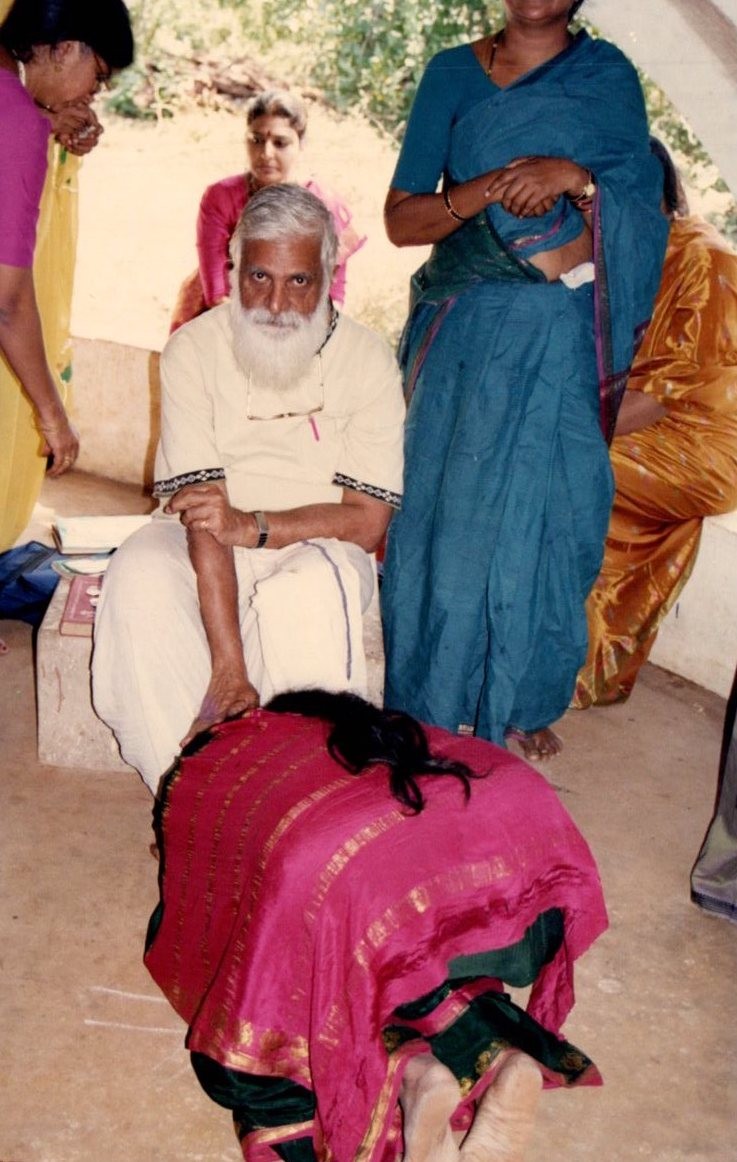
With the passage of time, however, the radical freedom and generosity that guided him throughout his life had become compromised. Rather than “doing as he willed”—as his father, Gurugaru and most of his life experiences had taught him—he too often found himself being used as a mere diksha resource, “giving mantras to devotees on demand rather than giving only what I felt was good for them.”
This particular departure from tradition had, he now felt, been an error. “It is not the tradition that the disciple asks the guru to give this or that mantra,” he explained. “The guru decides which he thinks is the best for the disciple. Yet, so many devotees requested me to give Maha Shodashi, Mahavakyas, purnadiksha; to make them peetadhipatis and so on—and I accommodated most such requests.”
Gurujis follower recollected: I also remember a case when a student from Buffalo came to Guruji asking for the Gayatri mantra. Guruji told him, ‘Why do you want Gayatri? It is a Vedic mantra and requires you to give up meat, etc. Why not take a Tantric mantra with higher potency and no such restriction?’ I could see he was uncomfortable with being put in a position where the disciple was demanding a particular mantra.”
Guruji’s motivation in doing so, he said, was never personal gain. “I went out of my way to do this out of pure compassion,” he said, “without expecting any return for shaktipat or initiation. If anyone gave me anything for my personal use, I spent it for Devi. God has given me enough to survive on; I have no need to appropriate what is given to God as mine.”
Source: Michael Bowden's biography "Goddess and the Guru"
